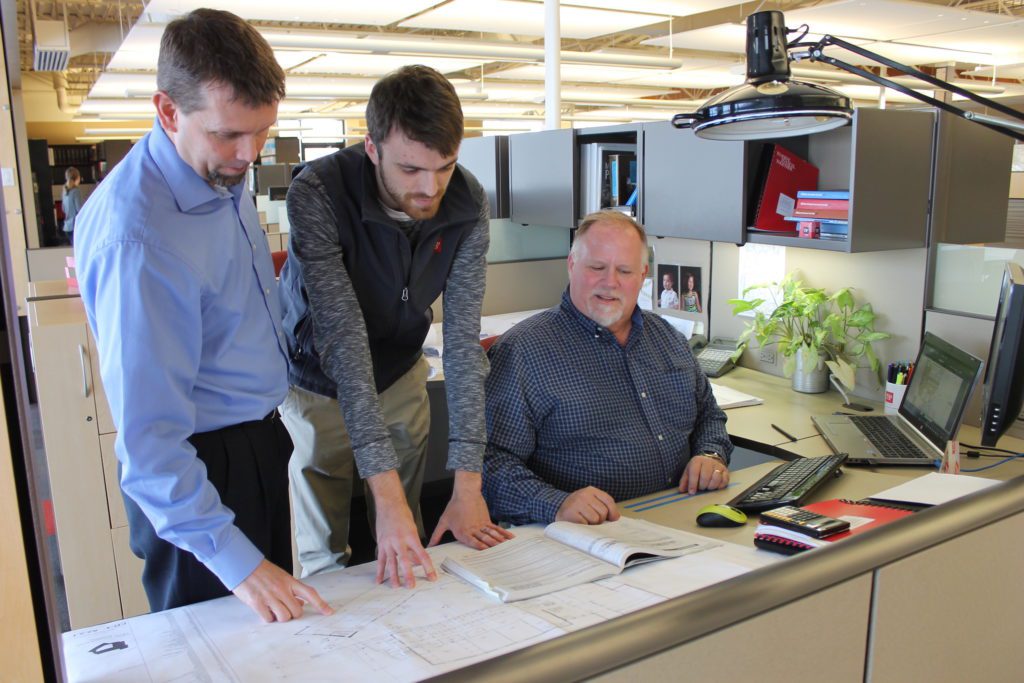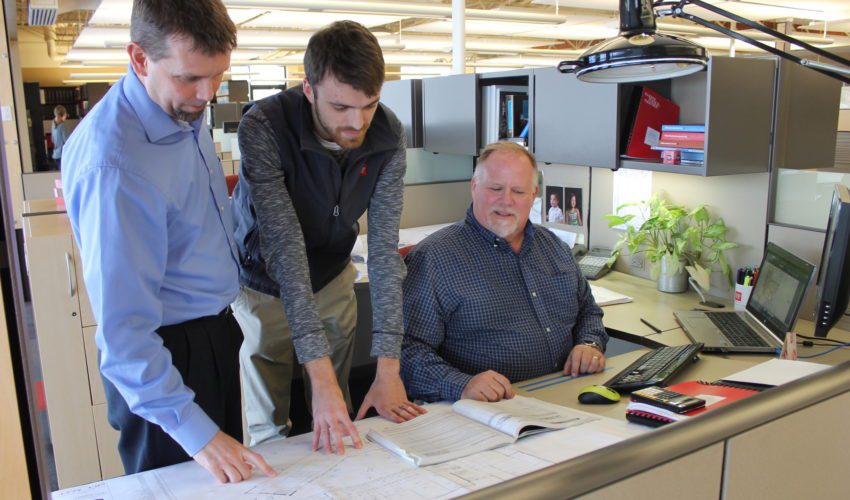This new degree program could advance countless professionals
This piece is presented by TSP.
When a South Dakota State University administrator asked Dick Gustaf to represent engineers on a task force, the former CEO of TSP Inc. didn’t hesitate to say yes.
As a result of that task force, two state universities are offering a new master’s degree that could impact future leadership in countless firms. The degree, which emphasizes professional development and leadership skills, could advance the workforce and fill a gap that Gustaf himself had experienced as a newcomer in engineering.

Dick Gustaf
“As I look back, whatever I learned administratively I learned O.T.J.—on the job,” Gustaf said. “I think with a little bit more education in the area of an MBA without a heavy, heavy accounting side to it, maybe I would have been more valuable sooner in my career administratively to the company. That’s what we’re looking for these young folks to gain.”
Last spring, the South Dakota Board of Regents approved a Master of Engineering degree to be offered at SDSU and the South Dakota School of Mines & Technology. The 30-credit M.Eng program can be completed in three semesters and will be tailored to the participants’ needs through on-campus, online and hybrid classes.
Lewis Brown, dean of SDSU’s Jerome J. Lohr College of Engineering, began exploring an M.Eng program almost 10 years ago. Such a degree would be ideal for workplace-bound professionals who want to advance management and leadership skills without the emphasis on accounting found in an MBA, he said.
“I’m not sure that advanced coursework would make you a better leader at a place like TSP,” Brown said. “Getting something that emphasizes management and leadership definitely would.”
The program offers instruction in leadership and applied management, project management and operations management. The task force on which Gustaf served determined an M.Eng program graduate will be successful if he or she has in-depth technical knowledge in an engineering discipline, knowledge of contemporary management in professional practice, demonstrated ability to apply engineering and management concepts, and the ability to effectively communicate verbally, graphically and in writing.

Jake Buckmiller, center, an engineer-in-training at TSP Inc., is considering returning to South Dakota State University in Brookings to pursue a Master of Engineering degree. It is being offered for the first time at SDSU and the South Dakota School of Mines & Technology.
M.Eng classes at SDSU began Aug. 21. Fourteen full-time students are enrolled in the program along with several matriculating seniors from the undergraduate engineering programs, said SDSU program coordinator Teresa Hall.
So far, currently enrolled engineering students have expressed the greatest interest, Brown said. He expects that to change as professionals in the workforce learn more about the degree.
Future participants could include two engineers-in-training at TSP, Sidney Smith and Jake Buckmiller. Smith graduated from SDSU with a degree in mechanical engineering in December 2014, while Buckmiller received his electrical engineering degree in 2015.
“When I was going to school, I originally was planning at some point to go back for an MBA,” Buckmiller said. “But when I narrowed my career choice down to consulting engineering, it seemed like an MBA didn’t have as much of a place in that, and I kind of lost interest. It seemed like there would be little gain for the time and money you’d have to put into an MBA.”
An M.Eng, however, seems like a better option , Buckmiller said. “An option to furthering your education with more of an engineering focus seems like a win-win. You’d focus on the business and leadership side of things with an engineering background for a master’s level degree.”
Smith, who intends to focus her career on heating, ventilation and air conditioning, said she has learned a master’s degree in mechanical engineering might not prove as helpful as a degree focusing on leadership.
“A lot of engineers do seem to end up going in management, and they become leaders in the company they join,” she said.
Many working professionals who want a master’s degree are not interested in one based on research, Brown said. The M.Eng degree offers a new opportunity.
“This presents a much more achievable opportunity for someone in the STEM (science, technology, engineering and math) disciplines,” he said.

Kari Kiesow
Often, industries allow graduate engineers to take advanced courses during the workday, Gustaf said. TSP, a full-service architecture, engineering and planning firm, has had a tuition education assistance plan in place for at least 10 years, said Kari Kiesow, the company’s human resources manager. In the past three years, seven TSP employees have used the plan to pursue advanced degrees.
Employees can apply for up to 75 percent reimbursement. After TSP’s leadership team approves the request, the employee must maintain at least a B in the coursework. An employee who receives such assistance must remain with the company for at least three years after the degree is completed. Those who leave earlier are required to pay back a portion of the tuition reimbursement.







